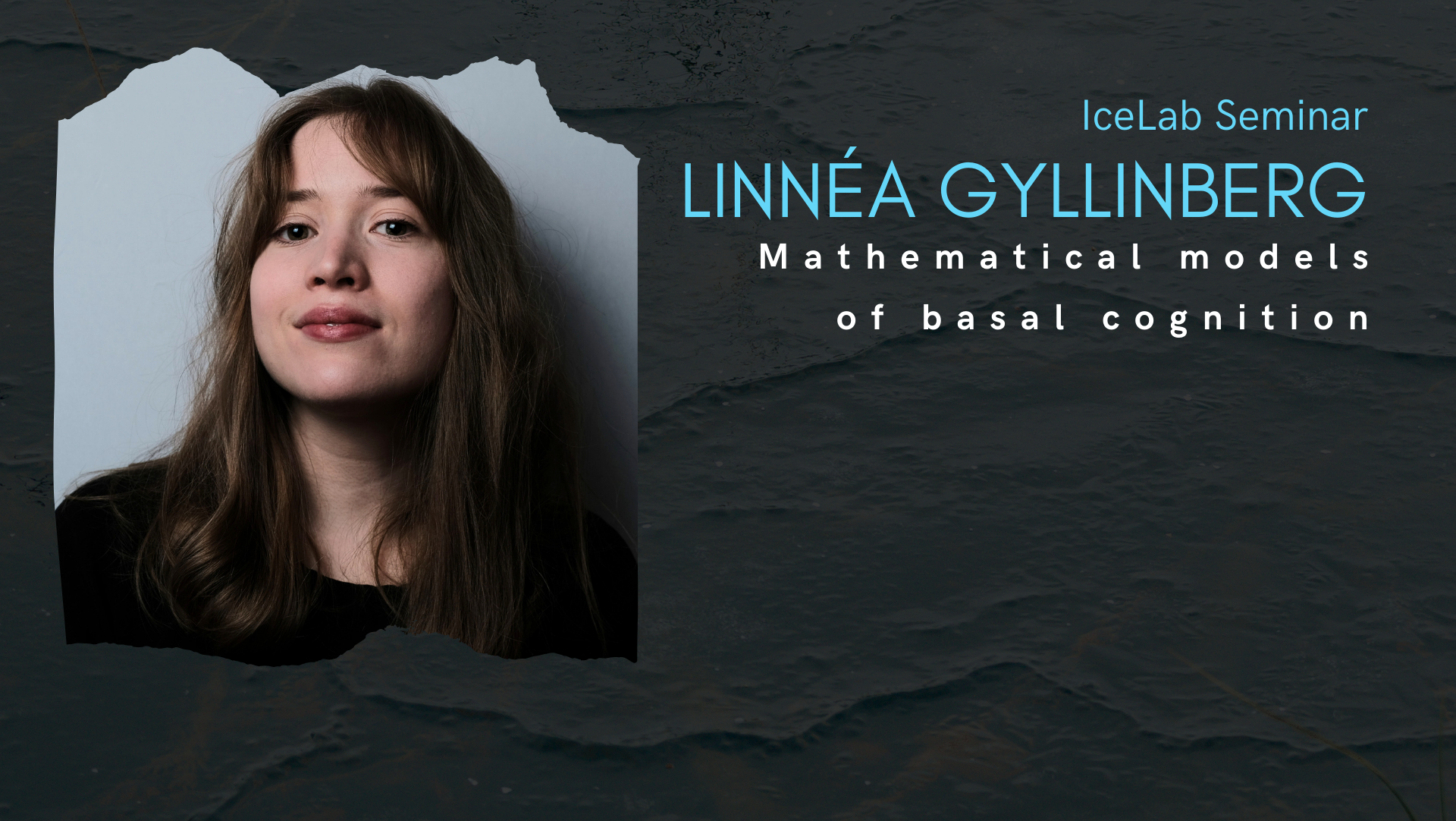

IceLab Seminar: Mathematical models of basal cognition
May 20, 2024 @ 14:00 - 15:00
IceLab Seminar with Linnéa Gyllinberg, Centre for Interdisciplinary Mathematics, Uppsala University
Please join us in IceLab to listen to a talk from visiting researcher Linnéa Gyllinberg.
Title: Mathematical models of basal cognition
Abstract: Building mathematical models of brains is difficult because of the sheer complexity of the problem. One potential approach is to start by identifying models of basal cognition, which give an abstract representation of a range of organisms without central nervous systems, including fungi, slime moulds, and bacteria. In this talk, I will first discuss the cognitive abilities of the true slime mould, Physarum polycephalum. Despite being an acelluar orgnaism, the true slime mould demonstrates habituation, finds shortest paths between food sources, and anticipates periodic events. I will then present a mathematical model for basal cognition that combines oscillatory and current-based reinforcement processes to mimic some of the cognitive abilities observed in slime moulds and other organisms demonstrating basal cognition.
About Linnéa Gyllinberg:
Linné Gyllinberg is a Doctoral student at the Department of Mathematics; Dynamical Systems and Number Theory, Uppsala University, within the Centre for Interdisciplinary Mathematics. Thanks to a grant from the Knut and Alice Wallenberg Foundation, Linnéa Gyllingberg, who will complete her doctorate in mathematics at Uppsala University in 2024, has obtained a postdoctoral position with Professor Mason A. Porter at the University of California Los Angeles, USA. Linnéa’s research falls into three areas: Collective behaviour and intelligence, Spatial models of ecology and epidemiology, and Philosophical aspects of mathematical modelling and complex systems.
